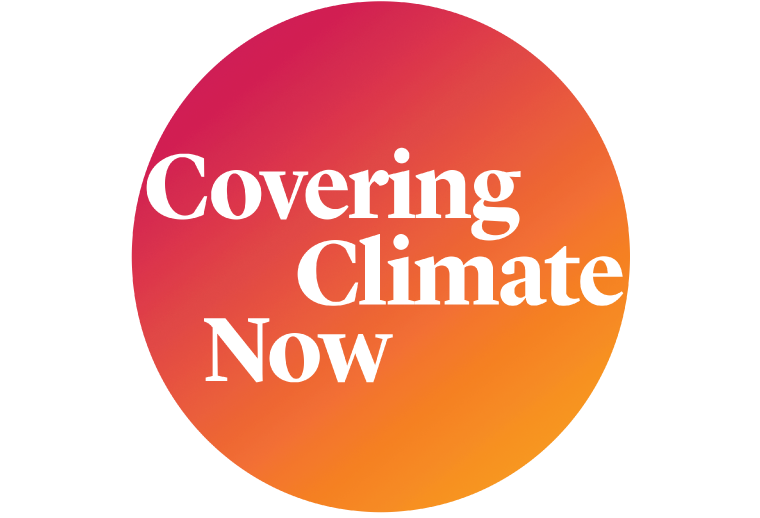By dominating Facebook, the world’s largest media platform, the GOP demonizes the Green New Deal
If you’re baffled that nearly half of the United States could look at the past four years and say, “I want more of that,” you aren’t alone. But that’s also not quite what happened.
What did happen is that much of the US electorate lives in a social media echo chamber saturated by disinformation, with climate change and the Green New Deal prime examples. Conservatives have turned the term “Green New Deal” into an emotional weapon—part of their overall narrative of Democrats as extremist, elitist socialists. It isn’t fact-based, but as Daniel Kahneman, who won the Nobel Prize for his work in behavioral economics, explained, “No one ever made a decision because of a number. They need a story.”
The irony is that there is a compelling, positive story to tell about the Green New Deal that should appeal to a broad base of voters. At a time when the pandemic has thrown millions of people out of work and spawned miles-long food lines, a Green New Deal would create millions of jobs that can’t be outsourced overseas. Americans would be put to work installing solar panels, building wind turbines, replacing leaky windows and outmoded appliances with energy-efficient alternatives, restoring farms and forests to store carbon, and undertaking a thousand other climate-friendly activities. With government investment priming the pump, a Green New Deal would boost revenues for business as well, paying for itself through the resulting increased tax revenues.
No surprise, then, that when pollsters describe the Green New Deal’s policies—a fast transition to a 100 percent clean energy grid and an economy free from carbon pollution—the idea is quite popular with ordinary Americans. Support plummets, however, if pollsters ask people how they feel about “the Green New Deal.”
Why is that?
Virtually from the moment Rep. Alexandria Ocasio-Cortez and Sen. Ed Markey introduced their congressional resolution, in February 2019, perception of the Green New Deal was tarnished by relentless right-wing attacks and misrepresentations of it as a socialist plot that will take away Americans’ cars and hamburgers—while progressives did little to advance their own positive public narrative. The watchdog group Media Matters reported in 2019 that, “in the last week of March, Fox News aired more than twice as many primetime segments discussing the Green New Deal as MSNBC and CNN combined”—and that coverage “was riddled with misinformation, mockery, and climate change skepticism.” These attacks were repeated in other right-wing outlets and echoed throughout social media.
By April 2019, Republicans were telling pollsters that they were both highly informed about the Green New Deal and strongly opposed to it. Indeed, one poll found that 43 percent of Americans strongly opposed it while only 24 percent strongly supported it. Given those numbers, it’s no wonder that Donald Trump and other Republican candidates hammered away at the Green New Deal during the 2020 campaign while the Biden-Harris campaign refused to endorse the idea.
It’s a familiar strategy. As Vox has explained, Democrats and the left tend to “find something, a candidate or a policy proposal, that sparks grassroots excitement and enthusiasm.” But then the “enormous right-wing media machine immediately smells blood and targets the person or policy with relentless negative coverage, ensuring that the right-wing base views the person or policy as almost comically evil.” The result for the mainstream media, centrists, and moderate Democrats is that this issue or candidate becomes “divisive” and “polarizing.” Media both-sides-ism takes hold.
Significantly, while the left sometimes sustains a short burst of consistent messaging on a subject, Democrats and the mainstream media typically lose focus after a short while. But the right never ends the demonization. They even managed to turn Trump’s failed pandemic policy into an environmental attack line, as the New York Times reported in May: “G.O.P. Coronavirus Message: Economic Crisis Is a Green New Deal Preview.”
For years, Republicans and right-wing media have been massively investing in compelling storytelling and viral memes. They’ve been saturating the system with simple, well-tested messages like “drain the swamp,” repeated endlessly, even in non-election years.
This is especially true for climate disinformation on social media. On Twitter, more than a quarter of the tweets about climate change come from bots (with the vast majority of these bots spreading lies). Investigative reporting by the New York Times recently revealed a well-funded effort to create “Astroturf” grassroots campaigns supporting oil companies (when the campaigns were in fact funded by energy companies).
By creating an interlocking network of GOP-controlled and -funded organizations that pose as media outlets and advocacy groups, the right has created an infrastructure to supply and viralize high-engagement content to feed social media’s infinite scroll.
A New York Times headline describes the post-election claims of impropriety and cheating as “tsunamis of misinformation” from conservative media outlets. If you can make up any headline and any story you want—knowing that you can call fact checkers liars and your audience will believe you—it’s much easier to create something that goes viral.
A disturbing number of the most viral stories on any given day are from far-right pseudo–media sources like the Daily Wire, Ben Shapiro’s conservative media arm that’s owned by the Wilks, a family that made billions on fracking. Republicans are outperforming Democrats in this digital echo chamber, in no small part because they use a network of big Facebook pages to cross-promote content.
The simplest first step for progressive donors, candidates, advocacy groups, and activists is to compare your Facebook strategy to more successful pages on the right and left. If you aren’t getting good engagement and doing message testing, then you’re squandering one of your most valuable assets.
Democrats and progressives have a choice. Either ramp up the viral storytelling tactics that Republicans are winning with or get ready to underperform in the coming elections and beyond.
This article is published as part of Covering Climate Now, a global consortium of news outlets strengthening coverage of the climate story.




